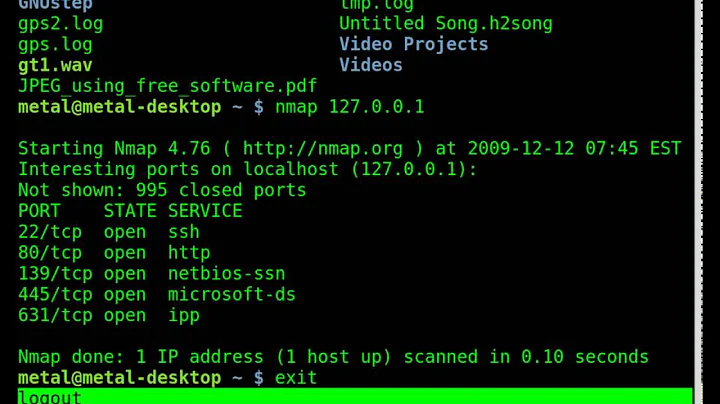bash function with ssh
Solution 1
You could use here-documents:
ssh user@serveraddress <<"END"
dbuser=user
dbpass=pass
DBS=$(mysql -u$dbuser -p$dbpass -Bse 'show databases'| egrep -v 'information_sch$')
for db in $DBS; do
echo "DB name - $db"
done
END
See: http://tldp.org/LDP/abs/html/here-docs.html
Solution 2
Can you not just put your script on the remote host and use ssh to run it
ssh [email protected] /path/to/script
Or if your script requires no command line parameters ypu can do this
cat script | ssh [email protected]
EDIT:
After some more research then this is probably a better solution all round
ssh [email protected] 'bash -s' <script
or
ssh [email protected] 'bash -s' <script param1 param2
If the -s option is present, or if no arguments remain after option processing, then commands are read from the standard input. This option allows the positional parameters to be set when invoking an interactive shell.
Related videos on Youtube
imp
Updated on September 18, 2022Comments
-
imp almost 2 years
I am just getting into bash for the first time.
How would I run a function on the server in this scope? drush status is something only on the server being ssh connected too.
#!/bin/bash function test { drush status } function connect { ssh user@serveraddress 'test' } connectI understand you need to put the remote code in the ssh user@server 'code here', however complicated things get confused with all the '" etc. For instance this should echo all the db names of the server.
function connect { ssh user@serveraddress ' dbuser=user dbpass=pass DBS=`mysql -u$dbuser -p$dbpass -Bse 'show databases'| egrep -v 'information_sch$ for db in $DBS; do echo "DB name - $db" done ' } connectAny help links appreciated, cheers
-
imp over 12 yearsthankyou very much there are afterall a few ways to get this done. I know this will come in handy again. To avoid the
Pseudo-terminal will not be allocated because stdin is not a terminal.I added a -T to thessh -T user@serveraddress.
![Automate Remote SSH Control of Computers with Expect Scripts [Tutorial]](https://i.ytimg.com/vi/Vt5S12U3F0k/hq720.jpg?sqp=-oaymwEcCNAFEJQDSFXyq4qpAw4IARUAAIhCGAFwAcABBg==&rs=AOn4CLB1dIvarZp_0SNCZYOm_GPYc9fBlw)



